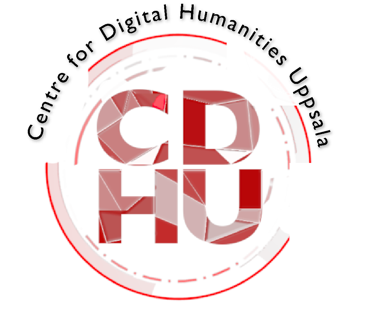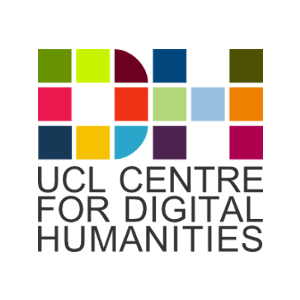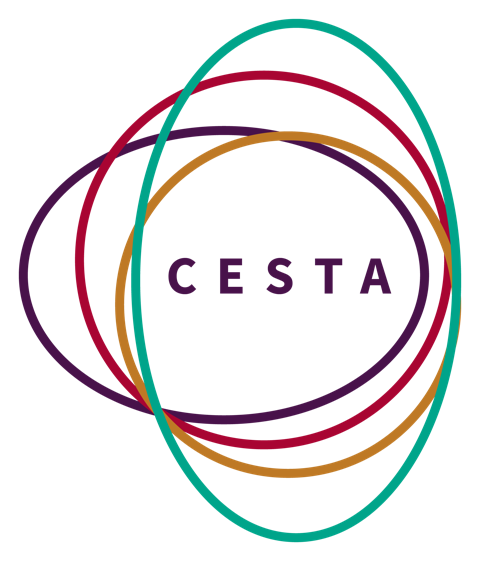April 13, 2021
Humanités numériques, цифровые гуманитарные науки, デジタル・ヒューマニティーズ: Histories and Futures of Linguistic Diversity in DH
Quinn Dombrowski, Stanford University
View the talk • Tweet thread with errata and additions • Multilingual DH bibliography
Abstract: International, interdisciplinary spaces are inevitably sites of tension, where differences in linguistic and cultural norms run deeper than they initially appear. This talk reflected on language as one longstanding axis of diversity within digital humanities as it is carried out at the international level, as well as within different national contexts. The question of linguistic variety in DH informed a frank discussion of the ways in which a general obliviousness towards languages commonly found in Anglophone countries has negatively impacted Anglophone scholars’ research, pedagogy, and engagement with the broader field of DH. The talk concluded with actionable steps that scholars, particularly in Anglophone countries, can take towards embracing language as an important axis of diversity.
Quinn Dombrowski is the Academic Technology Specialist in the Division of Literatures, Cultures, and Languages, and in the Library, at Stanford University. She has supported numerous non-English DH projects, taught courses on non-English DH, developed a tabletop roleplaying game to teach DH project management, explored trends in multilingual Harry Potter fanfic, and started the Data-Sitters Club, a feminist DH pedagogy and research group. Quinn is currently co-VP of the Association for Computers and the Humanities and advocates for better support for DH in languages other than English.
Response by Jin Gao and Maciej Kurzynski:
As Quinn Dombrowski emphasized right at the beginning of her talk, “diacritics are not optional decoration.” But this simple truth remains unacknowledged by many, and problems with encoding, special characters, misspelled names, and inconvenient titles continue to create unnecessary barriers within the DH community. As English is taken for granted, non-English DH communities and their research end up sidelined, if not completely obliterated beyond the horizon of interest in the anglophone DH scholarship. To counter this trend, Dombrowski highlighted the contributions of non-English scholarship to the field of Digital Humanities. “Multilingual DH” has its moment right now, she argued, as international networks of DH centers are being formed, new BERT (Bidirectional Encoder Representations from Transformers) models for a plethora of languages become available, and the Index of DH conferences keeps growing as more and more scholars engage in DH research all over the world. Dombrowski’s talk offered a number of insights into current multilingual DH scholarship, including new NLP tools for a variety of languages, international conferences, and proliferating new websites and Twitter accounts of DH lovers. Rather than one “big tent” of DH, Dombrowski emphasized the need for small, local tents focused on specific cultural contexts and problems that DH tools might help illuminate.
Among the audience, there were many who spoke languages other than English and work in non-Anglophone environments. Many participants felt grateful for Dombrowski’s attempt to raise the awareness about DH projects and achievements in multilingual and multicultural contexts. They also commented on the controversies around DH affecting its use in other language contexts. Dombrowski’s metaphor of thinking DH as a “crossroads,” rather than as one big tent, could potentially avoid sidelining “outsiders” and give more room to awareness of their less visible contributions.
Dombrowski highlighted differences between DH scholarship at ADHO events, on Twitter, and in local and multilingual contexts. This reminds us of Domenico Fiormonte’s discussion of people’s “anxiety and fear of being ‘cut out’ from the ‘international’ game (Fiormonte, 2017, p. 6).” Paradoxically, language and social platforms, as means of communication, are also barriers to the formation of global communities. Indeed, we know from Dombrowski’s talk that multilingual DH is booming, but it raises multiple challenges as it grows, and it will take a long time before DH does full justice to its multicultural ambitions.
Another point of interest is the (perhaps unwarranted?) faith in the multilingual DH’s ability to provoke new discussions and questions. Dombrowski herself outlined the paradox of the “big tent” of DH which more and more people are entering, only to feel alienated and disoriented when inside. As she put it, “the Big Tent is no one’s home.” This leads to the question of DH’s future: how to ensure that globalization of Digital Humanities as a multinational field makes this field more diversified? Statistical methods such as sentiment analysis seem to be applied in numerous contexts, with the result that ultimately everyone is asking the very same questions, limited by the scope of available computational methods. A point worth exploring is thus the question as to how the multicultural DH exchange and our conversations with DH fellows can actually give rise to new questions and make the “multilingual digital humanities” a more illuminating and inclusive enterprise.
References
Fiormonte, D., 2017. Digital Humanities and the Geopolitics of Knowledge. Digital Studies/Le champ numérique 7, 5. https://doi.org/10.16995/dscn.274
Respondents:
Jin Gao obtained her PhD in Digital Humanities at UCL, and she is a data standard editor at the Victoria and Albert Museum. Her research interests are network analysis and the history of DH.
Maciej Kurzynski is a Ph.D. Candidate at the Department of East Asian Languages and Cultures at Stanford University majoring in modern Chinese Literature.


